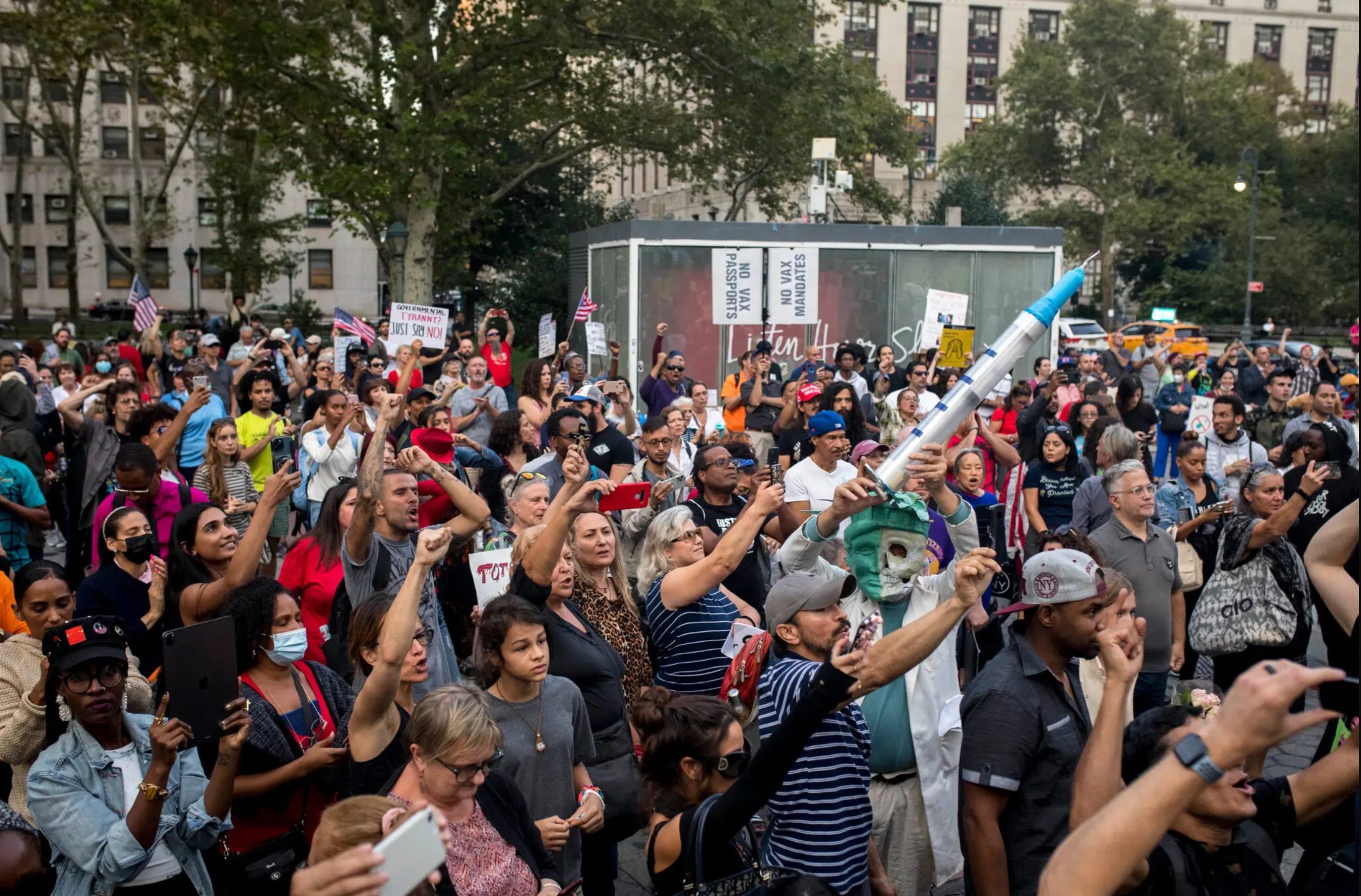The U.S. and Israel were early world leaders on vaccinations. Now they are trailing.

The United States was one of the first countries to begin vaccinating its population, and by summer, was leading most nations in getting shots in arms, with 67 percent of the population receiving at least one shot by July 4.
Today, 87 percent of people in Portugal are fully vaccinated, according to the Our World in Data project at Oxford University. That rate is second only to that of the United Arab Emirates, a far smaller country whose rulers exert considerably greater control. Earlier this month, Portugal ended nearly all of its coronavirus restrictions.
The United States, meanwhile, despite having a surplus of doses, has fully vaccinated only 57 percent of its population, according to a New York Time tracker. Resistance remains high among some demographic groups and within some specific work force sectors, including police officers and firefighters.
That has left the United States lagging behind dozens of nations in the pursuit of full vaccination. Although, with a population of about 330 million, it ranks third in the sheer number of administered doses, more than 411 million, after China’s more than 2.2 billion doses and India’s more than one billion.
Other early vaccination leaders have also stumbled. Israel got an early start on its vaccination campaign on Dec. 20 and rapidly outpaced virtually every other nation in getting jabs into arms — and now in giving booster shots to nearly half of its eligible population. But today, with hesitancy remaining among Arab, Orthodox Jewish and younger Israelis, the country reports that just 63 percent of its population is fully vaccinated, less than South Korea, Italy and some 40 other countries.
Public health experts blame the shortcomings of the U.S. effort partly on a toxic political environment, amplified by misinformation on social media and muddled messaging by government authorities.
“Every country has an anti-vax movement, but in most countries it’s exceedingly small,” said Dr. John Swartzberg, a professor at the School of Public Health at the University of California at Berkeley who has taught a seminar on vaccine hesitancy for several years. “It’s not a new movement, but it’s never had the traction it has today.”
Social media has been “irresponsible” in dealing with unfounded rumors, he said, and the United States has been “the poster child of a country that has not handled the messaging about vaccines.”
A lack of trust in authorities and expertise, along with deep political polarization, also played a key role in hampering the U.S. vaccination effort, said Dr. Michael Lauzardo, deputy director of the University of Florida’s Emerging Pathogens Institute.
“If somebody’s family member is diagnosed with cancer, you’re going to talk to an expert,” he said. “But if somebody’s family member gets a life-threatening disease, in this case Covid, they’re more willing to listen to television pundits and get their information from social media than from doctors and public health experts.”
In Asia, part of the turnaround comes from countries finally securing supplies and working out the kinks in their vaccination programs.
In countries like France, Italy and Canada, officials began requiring people to use health passports to show proof of vaccination to enter many establishments, a move that is credited with improving their vaccination efforts.
“We do not have the barriers of supply or distribution or access to the vaccine,” said Dr. Leana Wen, a public health professor at George Washington University. “The only barrier at this point is people’s willingness to be vaccinated. That’s what’s going wrong compared to other countries that have solved their supply, distribution and access issues.”
Source: The New York Times
Contact Us
The US Armenians promotes businesses, advertising, collaborates, lists jobs, buys and sells products, and many more ideas. We would like to hear your thoughts and feedback, so please feel free to contact us through direct message, or via email at theusarmenians@gmail.com
If you have any questions/concerns about our website/social media platforms, feel free to contact us via email and we will get back to you as soon as possible.
For business/collaboration inquires, feel free to email us, and please in the Subject enter “BUSINESS”.
Thank you!
-
Email:theusarmenians@gmail.com
-
City:Los Angeles

